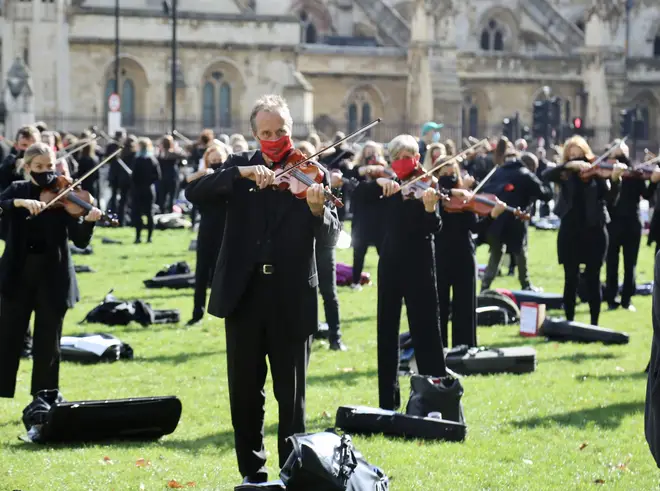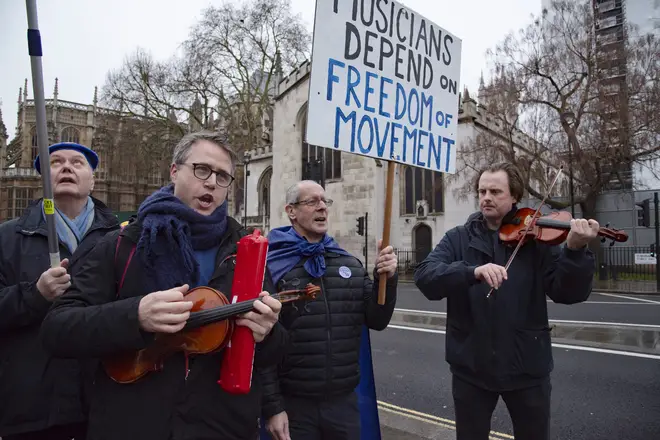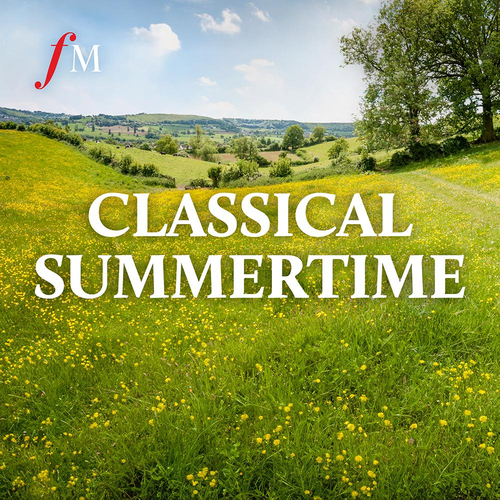What does the government’s Brexit deal mean for touring musicians and orchestras?
30 December 2020, 15:34 | Updated: 14 January 2021, 17:54

Here’s all we know so far about how the government’s Brexit deal will affect touring musicians.
Since the Home Office’s announcement in February 2020, we have known that EU touring artists may need a visa to perform in the UK from January 2021. But now with a Brexit deal in place, the conversation around how UK musicians will also be affected is gaining national coverage.
A petition for the government to provide UK musicians with a free culture work permit is on nearly 200,000 signatures, with signatories including high-profile musicians from Louis Tomlinson to KT Tunstall, and actor and comedian Dawn French.
The petition’s creator, Tim Brennan, writes: “As a freelancer I and many like me travel through the EU countless times a year on different tours and events, this will become impossible due to cost and time if we do not have visa free travel.”
90,000 people have signed a second petition from The Musicians’ Union (MU), which calls for a Musicians’ Passport.
According to The Independent, ministers have been warned musicians will have no choice but to abandon tours, with rumours of visa charges and paperwork that could be, according to industry body UK Music, “the straw that breaks the camel’s back”.
There are also warnings that if the Brexit deal is implemented, UK concert lovers will miss out on seeing top EU artists, while UK musicians may struggle to afford to perform in EU countries due to new visa charges. Here’s what we know so far.
If you're in the UK and a music fan please sign this petition to help UK musicians tour Europe after Brexit! https://t.co/beh0isXnsq
— Louis Tomlinson (@Louis_Tomlinson) December 28, 2020
Can UK musicians perform in EU countries after Brexit?
Musicians are not included on the list of workers allowed to enter the EU without a visa, under the PM’s Brexit agreement. So, if the finalised deal is implemented, UK musicians may need a work visa to play in some EU countries.
Several industry leaders have pushed back on the omission, including three major bodies representing UK musicians: the MU, UK Music and the Incorporated Society of Musicians.
Jamie Njoku-Goodwin, chief executive of UK Music, has urged the government to rethink its list, saying: “There is a real risk that British musicians will not be able to bear the cost of extra bureaucracy and delays which would put some tours at risk,” he said.
“If musicians and creators from overseas face barriers and costs getting into the UK, audiences here could miss out on seeing some of their favourite acts.”
The Incorporated Society of Musicians, which says it is “deeply concerned about the absence of visa-free travel provisions for working musicians”, previously for a two-year, multi-entry visa which was rejected by the Home Office.
The body’s chief executive, Deborah Annetts, has criticised the deal, calling it “hugely disappointing after everything the sector has been through over the past 10 months. How has this happened?”

Can EU musicians perform in the UK after Brexit?
From January, anyone from the EU wanting to perform in the UK may need to apply for a visa. They also may need to provide proof of savings and a certificate of sponsorship from an event organiser.
Under the government’s Brexit deal, if implemented, the paperwork currently required of non-EU artists will likely be imposed on EU musicians.
Read more: UK cultural life ‘diminished and shackled’ by visa policy, says composer >
What extra charges and paperwork could UK musicians face?
Musicians may also be required to fill out a carnet, a passport for professional equipment – for example, a musical instrument – that involves paying a deposit.
The MU has warned the carnets will come at “a significant cost”.
The ISM has added that under the deal, UK performers will face the added complication of adhering to the immigration rules of each EU member state in which they worked. In other words, musicians may need to secure visas for each country they are scheduled to perform in.

Simon Rattle: "Brexit will make life more complicated"
“This will have huge implications for UK musicians who work within the EU, as the ISM’s most recent Brexit report found that 78 percent of musicians visit EU/EEA at least once a year to perform,” the ISM said in a statement.
The MU is urging the government to add musicians to the list of ‘Independent Professionals’, which would allow them to enter the EU without a visa.
Horace Trubridge, the MU’s General Secretary, said: “In the longer term, we will be lobbying for a reciprocal arrangement with the EU that will allow musicians to work unimpeded.”
Njoku-Goodwin of UK Music has said the trade deal still leave “many questions” unanswered for the music industry, which was worth £5.8bn to the UK economy in 2019.
The Department for Culture, Media and Sport's Oliver Dowden has taken to Twitter to show enthusiasm for the deal, highlighting UK autonomy over its data rules, but has yet to provide comment on the deal’s impact on the arts and musicians.
Find out how the UK’s deal with the EU affects your work at gov.uk. The Department for Media, Culture and Sport has also released a list of helpline numbers for specific problems.



































